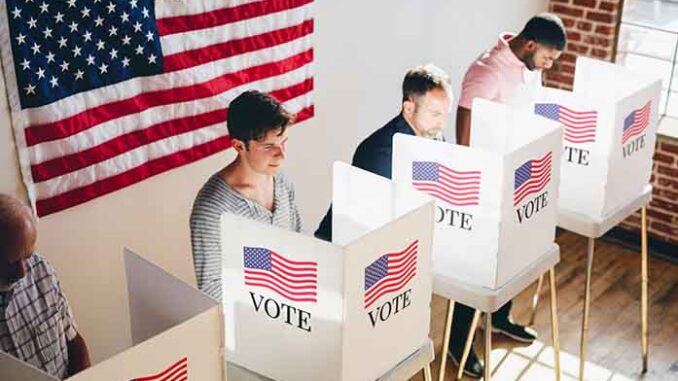
With several election-related bills under consideration by the Arizona Legislature, reformers are pushing for more transparent, trackable, and publicly verifiable elections. Which is why they say opposition based on voter privacy concerns is a red herring.
On Monday, Senate Bill 1324 passed out of the Senate Elections Committee on a 5 to 3 vote. The bill would require several elections-related reports and data to be made public, something many Democrats oppose, arguing that more elections data in public hands will lead to bad actions.
But a wealth of information is already publicly available about voters, including party affiliation and voting history, as well as whether a specific voter cast their ballot in-person (and where) and whether they signed up to have an early ballot mailed to them (and to where).
There are even public records for who cast a provisional ballot and whether it was accepted or rejected.
Among the records SB1324 would make public are each county’s Ballot Images and each county’s Cast Vote Record. Ballot Images are the digital images of the original ballots and is what tabulation machines “read” instead of the originals, while the Cast Vote Record is a data spreadsheet of all votes on all of the Ballot Images.
Much of the opposition to bills like SB1324 and its sister House Bill 2560 centers on concern that the public could learn how a specific voter filled out their ballot, particularly in small rural precincts across Arizona.
But supporters of the various bills to make Ballot Images and Cast Vote Records public contend voter privacy is a weak argument. In fact, it is already possible under certain limited situations to use existing public records to determine who a specific voter voted for, according to Mickey Duniho of AUDIT Elections USA.
Duniho explained to the House Municipal Oversight & Elections committees last week that once each county conducts its formal canvass, the canvass report is posted to the Arizona Secretary of State website. The report shows how many provisional ballots were accepted in each precinct within the county.
Then by checking further, a list can be compiled of the names of voters in those precincts who had a provisional ballot accepted. If the precinct is small enough, say with just one or two provisional ballots accepted, it is possible to determine who those voters cast their votes for.
And it has nothing to do with access to the Ballot Images or the Cast Vote Record, Duniho explained as the House committee considered HB2560.
In an exchange with Rep. Alex Kolodin, Duniho reiterated he can identify the votes of some voters in limited situations with information publicly available under existing state law. He believes bills like HB2560 and SB1324 could serve as models across the country.
Kolodin agreed, noting that having Ballot Images and Cast Vote Records available means greater opportunity to make Arizona’s elections more publicly verifiable.
And “transparency is the cure” to skepticism of elections, said Kolodin.
Transparency was also the keyword Monday as SB1324 sponsored by Sen. Ken Bennett and several other elections related bills were discussed by the Senate Election Committee. Bennett noted he has a very simple reason for wanting more elections data to be publicly reviewable.
“Less transparency, more conspiracies,” Bennett said. “More transparency, less conspiracies.”
After Monday’s vote, Maricopa County Recorder Stephen Richer issued a statement strongly endorsing SB1324 and HB2560.
“Elections work when there is openness and transparency,” said Richer, who added that the provisions of the two bills “will further strengthen our elections by enshrining the kind of transparency that can build public trust in our elections.”
LEARN MORE:
Bi-Partisan Election Transparency Bills To Be Heard In Senate
